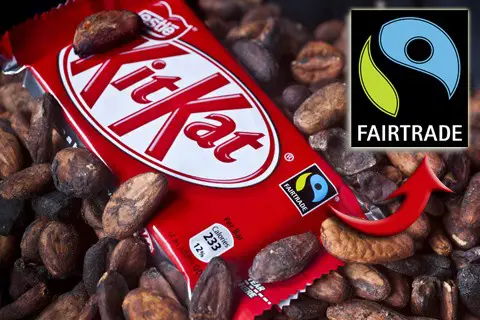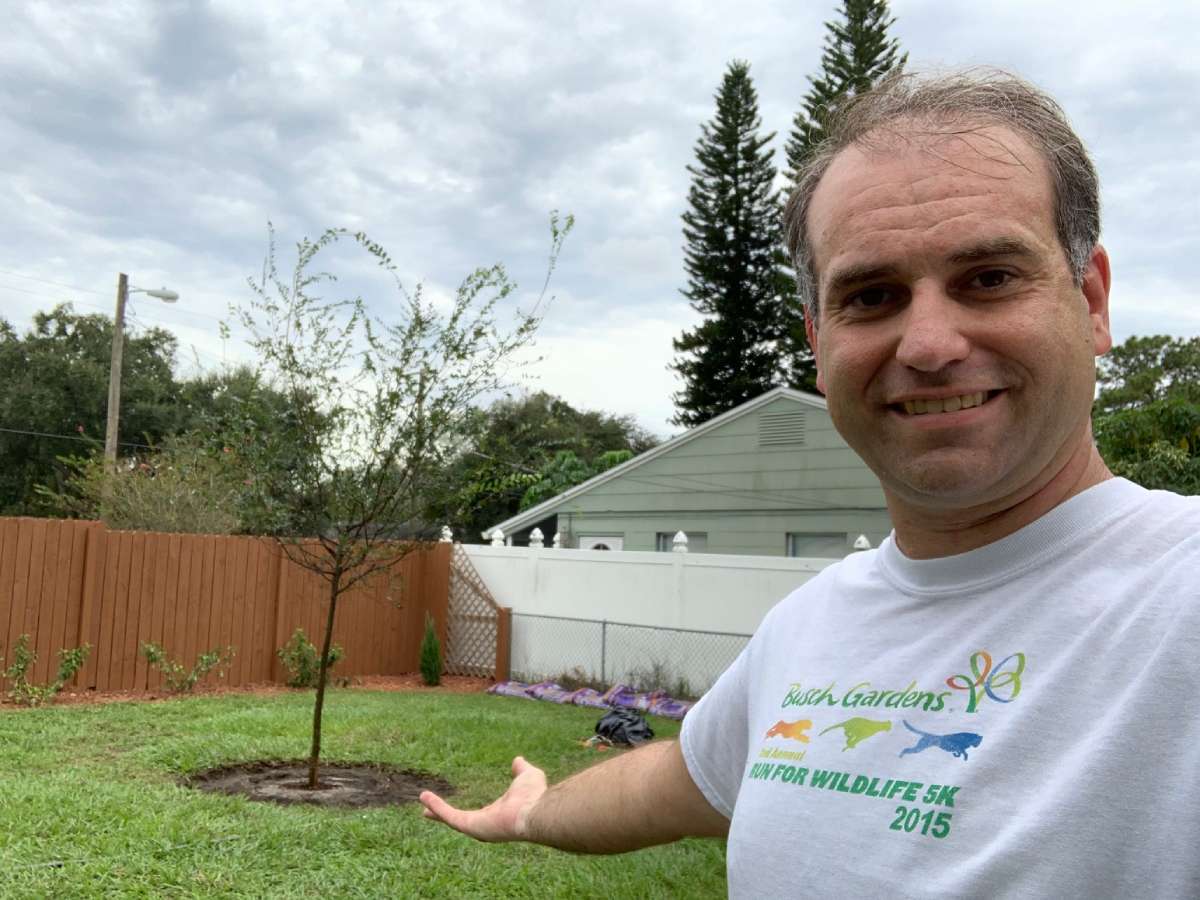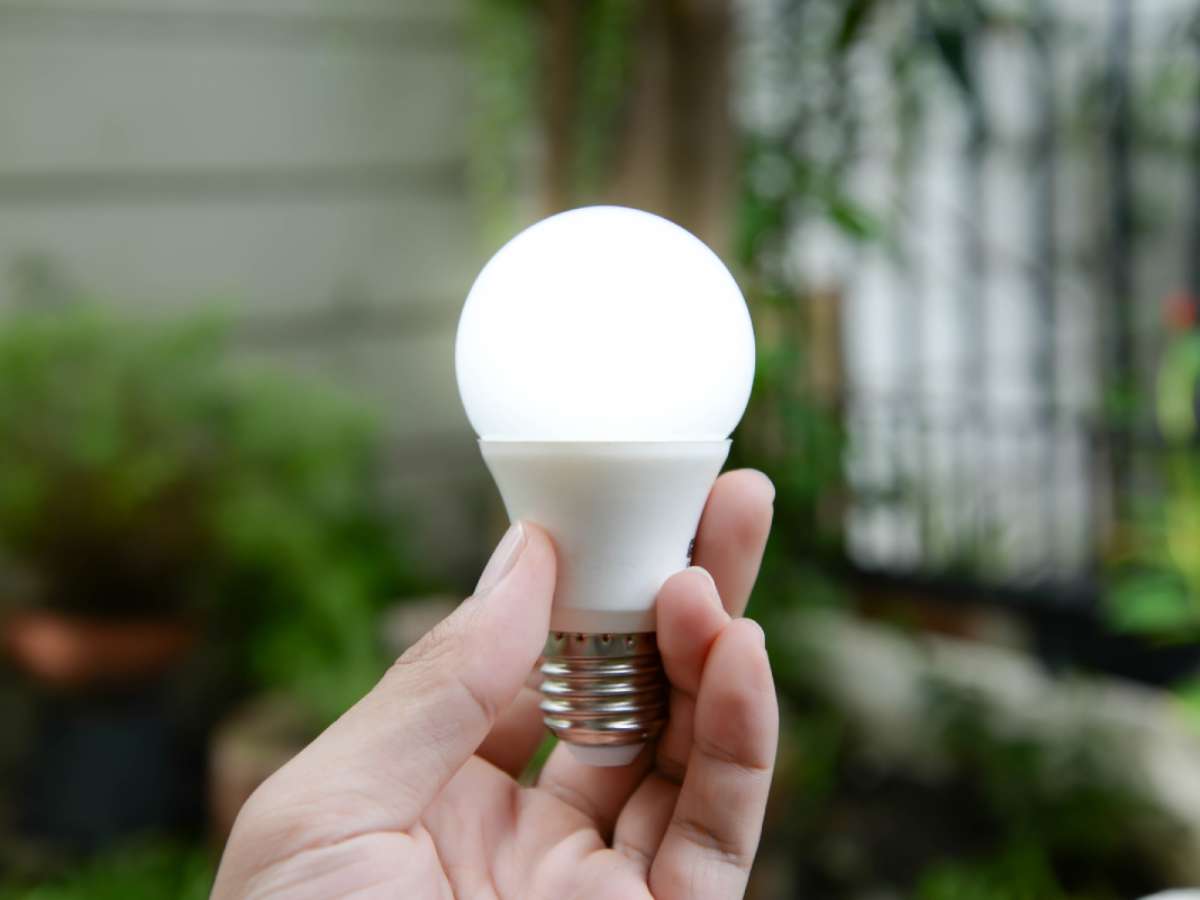You’ll soon be seeing a new logo on the front of Nestlé’s Kit Kat bar, the Fairtrade certified logo — but only if you live in the UK.
What is Fairtrade, why does it matter (or does it matter), and why only Fairtrade Kit Kat’s in the UK?
Well that’s what we’re fixing to tell you…
Nestlé UK announced last week that its Kit Kat — which is the UK’ #1 selling candy bar — will be made with certified Fairtrade chocolate in the UK and Ireland markets.
So why is this a big deal?
To start with, because it’s only part of Nestlé’s global Cocoa Plan which will involve a £65 million investment over the next ten years in programs that address the key economic, social and environmental issues facing cocoa farming communities.
Nestlé’s press release says,
"Fairtrade certification of Kit Kat will facilitate long term direct commitments to cocoa co-operatives including additional payments for the farmers to invest in community or business development projects of their own choice, such as improving health care and schools."
What does Fairtrade mean anyway?
The Wikipedia entry on Fairtrade says this:
"There are two types of Fairtrade standards for disadvantaged producers: standards for small farmers’ organizations and for hired labour situations. Fairtrade standards for small farmers’ organizations include requirements for democratic decision making, ensuring that producers have a say in how the Fairtrade Premiums are invested etc. They also include requirements for capacity building and economic strengthening of the organization.
Fairtrade standards for hired labor situations ensure that employees receive what supporters describe as "decent wages" and may join unions and bargain collectively. Fairtrade-certified plantations must also ensure that there is no forced or child labor and that health and safety requirements are met. In a hired labor situation, Fairtrade standards require a “joint body” to be set up with representatives from both the management and the employees. This joint body decides on how Fairtrade premiums will be spent to benefit plantation employees.
For some products, such as coffee, only Fairtrade standards for small farmers’ organizations are applicable. For others, such as tea, both small farmers’ organizations and plantations can be certified."
Basically any commodity that is Fairtrade (Fair Trade, in the U.S. and Canada) certified is supposedly grown on farms in developing countries where a fair wage was paid and the workers were treated like decent human beings.
Is Fairtrade really fair?
An article in The Guardian UK thinks that the program should be called Not So Fairtrade.
Andrew Chambers writes,
"Economist Paul Collier argues that Fairtrade effectively ensures that people "get charity as long as they stay producing the crops that have locked them into poverty". Fairtrade reduces the incentive to diversify crop production and encourages the utilization of resources on marginal land that could be better employed for other produce. The organization also appears wedded to an image of a notional anti-modernist rural idyll. Farm units must remain small and family run, while modern farming techniques (mechanization, economies of scale, pesticides, genetic modification etc) are sidelined or even actively discouraged."
Chambers goes on to explain why Fairtrade certified goods might actually encourage market oversupply and actually be little more than western feel-good mechanism.
Is he right? Does Fairtrade certification truly provide benefit to its participating farmers and influence your buying decision, or do you think it’s just a legislated [non]charity?




